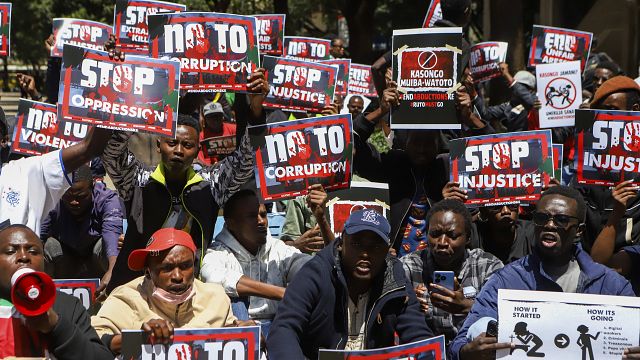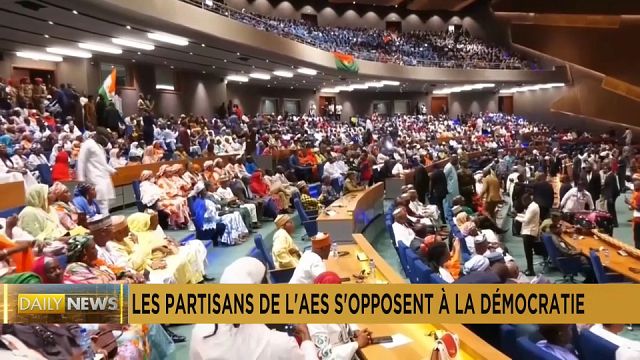Investigative Journalist Manasseh Azure, has been fired in court with a series of questions on his training as a journalist, his knowledge of the law and several allegations he levelled against the Lighthouse Chapel International (LCI) in a number of articles he wrote, titled “Darkness in a Lighthouse”.
LCI, sued Manasseh Azure, the Media Foundation for West Africa, its director Sulemana Braimah and Edwin Appiah, for publication of the articles, saying the attacks on the church and its founder Bishop Dag Heward-Mills are unwarranted, unfounded and defamatory.
The case is before Justice Joseph Adu Owusu in the High Court (General Jurisdiction – 13).
The defendants contended in their statement of defence that the suit was “intended to unlawfully fetter and frustrate them (defendants) in their fundamental and constitutional right to speech and of mass media guaranteed in Articles 21 and 162 of the Constitution.”
Mr. Kweku Paintsil, counsel for LCI while cross-examining Manasseh Azure on June 19, 2024, quizzed him on whether he is aware that the right of the press in Article 162 of the constitution is balanced by the fundamental right of every Ghanaian to a good reputation under Article 164 of the constitution to which he answered in the affirmative.
In response to a defence that Sulemana Braimah, the 3rd defendant, has no role in the publications of the Fourth Estate, including the articles in contention, Mr Painstil, confronted Manasseh with Exhibits proving that Sulemana Braimah, published those articles on his own Facebook wall and asked Manasseh to confirm that those exhibits were publications by Sulemana Braimah. Manasseh admitted it.
Manasseh, was asked whether he remembers a lecture he gave at the University of Ghana in March 2023, in which he said he had till then never been found liable by a Court in respect of his publications.
Manasseh answered that he did not remember the details of that speech. But if he “did refer to not being found liable, then it would be with reference to defamation.”
Then he was asked whether he recalls that on October 25, 2022, he and all the Defendants were convicted of Contempt of Court in connection with the articles “Darkness in a Lighthouse”. He admitted that and said a contempt case is different from a defamation case.
Following his answer, Mr Paintsil pressed on that Manasseh is giving the impression that in matters of the press, he Manasseh considers judgment in civil matters as more important to him than a criminal conviction arising out of his publications. Manasseh answered that that was not the case.
Manasseh was asked whether as a journalist, he appreciated the significance of publishing matters that were not contained in the pleadings before court, which were in controversy. He said he did.
He was asked whether as a journalist, he received training on publications of matters before the court. He answered as follows: “What I remember from such training was to refrain from passing judgement or opinions about the possible outcome of a case.”
He was again asked whether he was aware that in his publication he raised issues about the alleged failure of the Plaintiff (LCI) to pay Social Security contributions of some six pastors who resigned from the church. He answered that “Those were the allegations by the six pastors who resigned and same were also found in the documents they filed in court.”
Manasseh Azure, admitted that the documents filed by those six pastors before the court were for the judge’s assessment and determination only at the conclusion of the trial.
He further admitted that he did not expect the trial judge to be bound by any conclusion that he (Azure) reached at the end of the trial.
Counsel for LCI, then referred Manasseh to an article titled “Evidence – How Lighthouse Chapel Incriminated itself and SSNIT Looked Away” and put it to him that the defendants wrote the article in direct response to the SSNIT report exonerating the plaintiffs of the allegations of non-payment of SSNIT contributions. Manasseh admitted it.
The witness for LCI relying on an August 2021 SSNIT report, earlier said in court when he was being cross examined that the defendants have no shred of evidence to support the allegation that the church owed some former pastors of the church over 42 years of SSNIT Contributions.
The LCI witness, further said that Manasseh and others, had no evidence to support the publication that three church buildings owned by LCI and pictured in those articles were rather built with the personal resources of Larry Odonkor, Edward Laryea and Seth Duncan, all former pastors, and the LCI forcibly took over those buildings afterwards.
The case was adjourned to July 22, 2024 at 12:30 for continuation of the cross-examination.
The post Manasseh Azure grilled in Lighthouse Chapel defamation suit appeared first on The Herald ghana.



